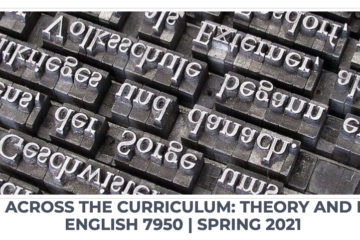(Post 1 of 2 on Call Me by Your Name)
I wanted to write about Call Me by Your Name before we’d finished watching the opening credits, and it’s taken me more than a month (and about five viewings) before I could do it. As I start this piece, I’m listening to Sufjan Stevens’s multi-award nominated “Mystery of Love” and feeling that the song he wrote for the film captures so much of the elusiveness of first love that’s at the heart of the film — and book, though the book makes that rookie writing mistake of trying to find an ending, to epilogue-ing a summer from years later, and the elusiveness becomes contextualized in a life that’s more lived. I’m not sure I like that all that much.
For me, the film’s focus on a six weeks in the summer of 1983, located in the Italian riviera as far away from what I could imagine as the real world as possible, the filters that cover every seen, the handheld effects in the camera work, all these things spread a scrim over each seen and that whole six-week summer — a scrim that’s how I remember my own adolescence in many ways. I know the film is filled with all the problems that continue to plague queer film work: the central characters are overwhelmingly white and intensely middle-class; the actors are, as far as we know, all straight-identifying (gay for pay = award nominations); and the women are intensely flat and uninteresting, except in a few moments, a reflection of the Greco-Roman world of the 3 men who occupy the intellectual and sexual world of the film. The first two issues are important, but it’s this third one that frustrates me as a viewer and thinker most, even as it’s perhaps exactly the point.
Obviously, Marzia (Elio’s virginal fling) and Chiara (Oliver’s supposed summer tryst) are throw-away characters in as much as we know next to nothing about them: in strange ways, they seem to occupy the frame of the narrative that focuses on Elio’s and Oliver’s discoveries of each other. They seem to be put there simply to show us that Elio and Oliver need to move beyond them to find each other; they works a plot devices to make “coming out” (or “coming in together”) a thing. It’s possible to see them more richly, but that takes some work. Similarly, Mafalda (the cook/maid), while offering some moments of humor and some texture to the world of the house itself, does little more than cook and care for the family, a surrogate grandmother to Elio, somewhat, but ultimately there to exist in the background, keeping things running. The same can be said for Elio’s mother, Annella, who inherited the Italian home: she reads to her son and husband; she periodically sunbathes or smokes a cigarette or entertains gets at al fesco lunches and dinners; but rarely does she seem to have depth or real meaning.
Ultimately, these women seem to exist either for sexual pleasure and as seed beds for male prowess and regeneration, or they exist to clean up the messes left behind. They keep the house and organize emotions while men think big thoughts about Heraclitus and go in search of lost objet d’art. The fact that the film does little to celebrate bisexuality helps this construct little, as the sexual engagements between men and women are ephemeral and lack much meaning. This point becomes intensely clear when Elio and his father are talking on the couch at the end of the movie; the speech is shockingly the same from the book to the film. Oliver has returned to America and Elio is heartbroken at the loss of his first love. Mr. Perlman offers the speech to Elio that most of us gay boys wished our fathers had offered us — or perhaps anyone had offered us, especially those of us discovering our sexuality in the 1980s. In confronting Elio’s summer love for Oliver, he validates that moment, but he also reveals something about himself that shocks Elio. Speaking of the intensity of love and passion, Mr. Perlman says,
I may have come close, but I never had what you had. Something always held me back or stood in the way. How you live your life is your business. But remember, our hearts and our bodies are given to us only once. Most of us can’t help but live as though we’ve got two lives to live, one is the mockup, the other the finished version, and then there are all those versions in between. But there’s only one, and before you know it, your heart is worn out, and, as for your body, there comes a point when no one looks at it, much less wants to come near it. Right now there’s sorrow. I don’t envy the pain. But I envy you the pain.”
Some viewers/readers see this as a confession of sorts, suggesting that Elio’s father was also gay but couldn’t some out to live and love as passionately as he’d wanted in the 1960s/1970s. In this figuration, it seems to me that Annella is relegated to a sort of sexual second-rate citizen. She was there for the nurturing and reproduction, as some histories of sexuality suggested was the place of women in some ancient Greek societies, but that pleasure and joy was located elsewhere. This makes him sadder to me than if we recognize that there might be types of passion — soap opera or storybook or something like that — that may simply be unrealistic, even dangerous as ideals to work toward. It may be “natural” for a middle-aged man (now that I am one) to look back and wonder if the desperate passions of youth are a loss (and there’s at least a few Prufock moments in the novel that don’t quite make it to the screen, which suggest this sort of ‘loss’), but I’m not sure that means Mr. Perlman is gay. But it does suggest that he’s taken a path with Annella that’s centered on partnership over passion, support over unbridled sex. To me, that’s interesting, but it also seems to speak to me as a teacher and scholar, as someone who finds intellectual entanglements more meaningful and powerful and ultimately more sustaining than sexual entanglements.
There’s a moment earlier in the novel as Perlman and Oliver are talking over breakfast about Oliver’s night out, gambling and drinking and possibly womanizing. Annella and Elio are there, as well. In the novel, Aciman has Perlman say,
Everyone goes through a period of traviamento—when we take, say, a different turn in life, the other via. Dante himself did. Some recover, some pretend to recover, some never come back, some chicken out before even starting, and some, for fear of taking any turns, find themselves leading the wrong life all life long.
Immediately after this, Aciman has Elio-as-narrator tell us, “My mother sighed melodiously, her way of warning present company that this could easily turn into an improvised lecture from the great man himself.” It seemed to me then that Annella knows he’s talking about her, about their relationship, about the possibility that Perlman himself has been leading the wrong life all along, but she dismisses it as yet more philosophical drivel from the “great man” (in his own mind), the sort of romantic frameworks that living through analysis yields: to make an analysis of art or literature or culture meaningful, there’s often this Platonic ideal against which the analysis is framed, at least for a classicist like Perlman.
Which is ultimately part of what’s frustrating about the gendered framework of Call Me by Your Name: gayness/bisexuality exists as part of a sexist framework that further marginalizes the value of women or their experiences, even if they look on like Annella and Mafalda and think men only really “boys” and their philosophies of love are at most silly pontifications. Which makes me like Annella and Mafalda more, their obvious side-eye at these boys and men playing at understanding love, when “love” and “passion” are more about naming things, claiming things, discovering things, etc — and all those things are outside of the self and the moment.
Perhaps this is what the whole “call me by your name and I’ll call you by mine” is: an attempt to re-embody love, passion, desire, to make me you and you me, to entangle two bodies in some way that our language practices and our heterosexist ways of framing love/desire do not allow? In marrying Annella, Perlman gives her his (last) name but does not take hers, as well: this is a claiming practice of naming, a taking, an ownership — putting your name on property and not being affected by the property. This is how Perlman and Oliver function as scholars, naming and taxonomizing ideas, objects, art, literature, exercising control over those things as a way to understand them (like what I’m doing in this blog post, what I do every day for work). Elio has been brought up in a home where these are the intellectual and emotional practices, and in some ways he does them too with his transcriptions of music, and the way he uses literature to verbally spar with Oliver or to show off to the people his father and mother bring home for lunch or dinner, after which Elio is trotted out to play something on the piano for them and told not to fuss about it.
When the gays at Food4Thot talked about the book & film, they seemed across the board to dislike the trite ending of the book, the “first time writer” mistake of the ending lines of “then, just this once, turn to me, even in jest, or as an afterthought, which would have meant everything to me when we were together, and, as you did back then, look me in the face, hold my gaze, and call me by your name.” And I get that, even as I’ve been wrestling with what that phrase really means. What are the ways we use language, our bodies, to connect to another person, to reach out across the intense loneliness of adolescent, in particular, to accept another person into us? I suppose that phrase for me is about desire and entanglements that excite me even as they scare me: this constant push-pull to be my own separate person, to be independent and not get lost in another person’s emotional wake, but also be with another person in ways uninhibited and complete. What would such a thing even look like?
In Call Me by Your Name, it seems that such a connection is ultimately an adolescent fantasy, and that may be all it can be. Perlman’s middle-aged reflections on love and passion, on what slips through our fingers or what we turn away from even if we don’t know we’re doing it or intend it when we do — these things seem the price we pay for growing up. There’s a surrender to it that maybe we can only do once, in adolescence, and never again. For me, that seems true: the surrender in my own adolescence to another, so completely and openly, is a surrender I’ve never again managed.
My next post on CMBYN will be about queer desires and surrenders … and peaches and apricots.



0 Comments